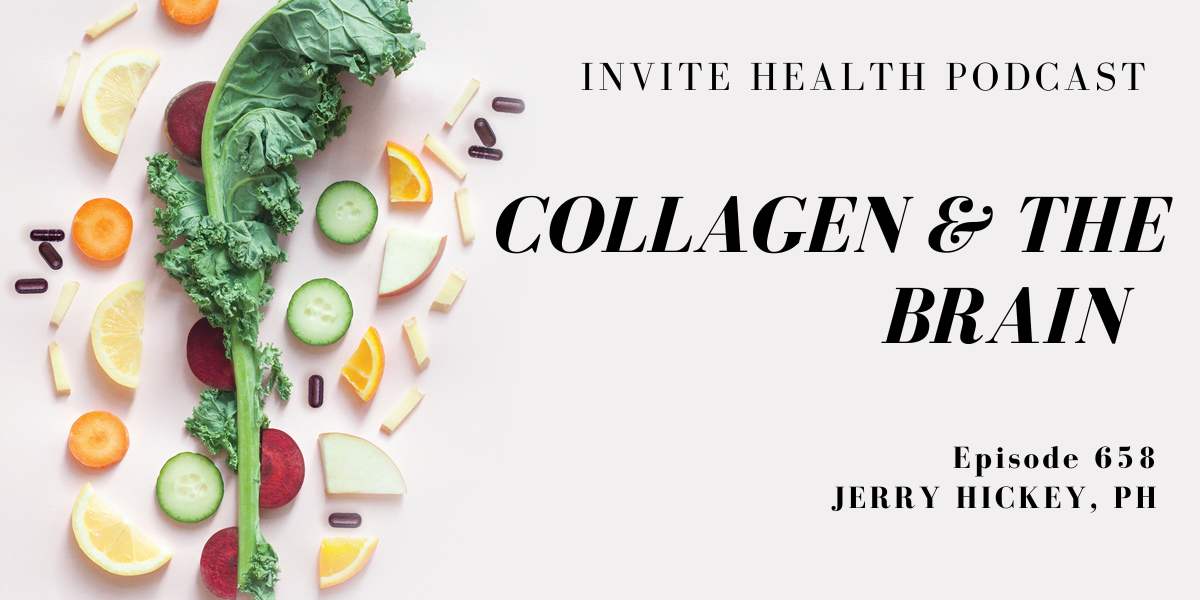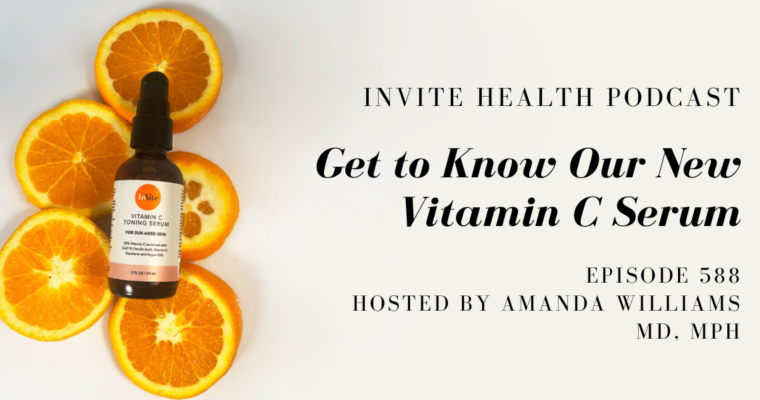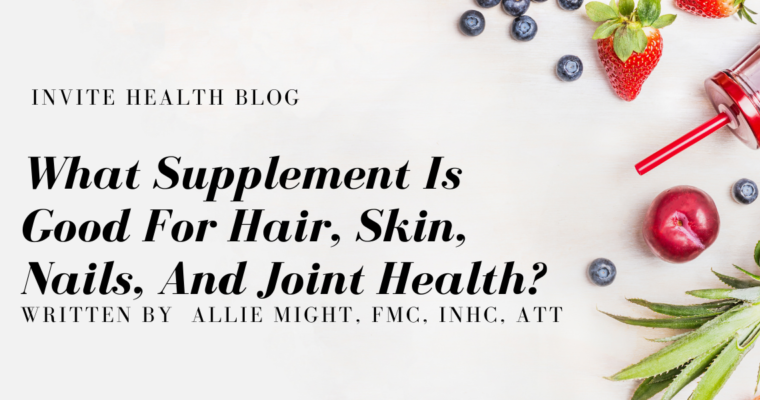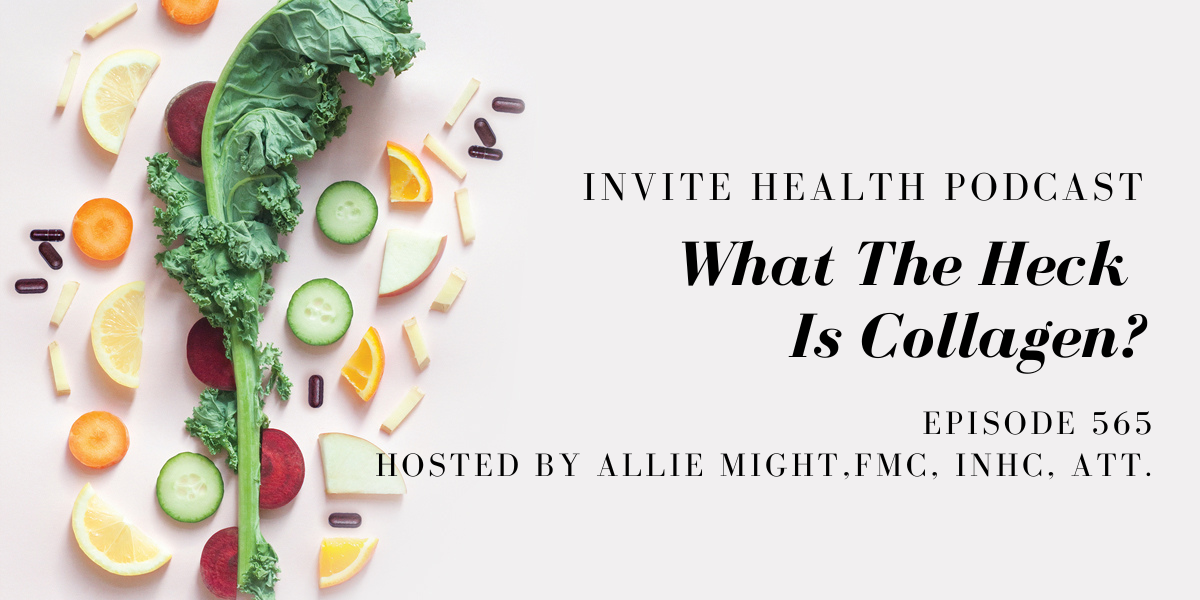Subscribe Today!
Please see below for a complete transcript of this episode.
COLLAGEN & THE BRAIN, INVITEⓇ HEALTH PODCAST, EPISODE 658
Hosted by Jerry Hickey, Ph.

*Intro Music*
InViteⓇ Health Podcast Intro: [00:00:04] Welcome to the InViteⓇ Health Podcast, where our degreed health care professionals are excited to offer you the most important health and wellness information you need to make informed choices about your health. You can learn more about the products discussed in each of these episodes and all that Invite health has to offer at www.invitehealth.com/podcast. First time customers can use promo code podcast at checkout for an additional 15% off your first purchase. Let’s get started. † [00:00:34]
*Intro Music*
Jerry Hickey, Ph: [00:00:40] Hi, Jerry Hickey here, nutritional pharmacist. And I want to talk about a natural body constituent called collagen and the brain. I was originally looking at collagen for the blood brain barrier, so let me explain what that is, because it’s very interesting and it probably does a lot more than we know about it so far. But the blood brain barrier is extra coating, extra thickness in the blood vessels in the brain that is needed to keep toxins out of the brain. For instance, if you had a fungal infection in your big toenail, so what, you treat it. But if you get that same fungal infection in your brain, you’re done. So, we have this barrier and system to help keep things like a fungus out of your brain, toxins out of your brain. Of course, it’s not successful with marijuana and alcohol and nicotine from cigarette smoke, but it keeps most things out of the brain successfully. The problem is that barrier gets leaky with age, and we also make less collagen with age. So, I wanted to see if there was a connection, and nobody’s worked out that connection yet. But what I found quite by accident serendipitously is that collagen is needed for your memory. So, I want to go into that. And when I finish discussing the collagen, I’m going to discuss other things that really are useful for your brain and your memory. So, hi, my name is Jerry Hickey. Welcome to my episode Collagen and your memory, collagen and your brain. I’m a nutritional pharmacist. I’m the senior scientific officer over here at Invite Health. All of the episodes of the InViteⓇ Health Podcast, are available for free wherever you listen to podcast or just go to invitehealth.com/podcast. You can also find and find on Facebook, Twitter and Instagram at Invite Health. All of the information on this episode will be listed in the episode description. And if you could subscribe and leave a review on these episodes, it would be very helpful to me. So, this is important stuff. And like I said, it’s a happy accident that I stumbled across this. So, collagen in is the second most common ingredient in the human body. It makes up so much of the body. It’s a type of protein. You’re made out of protein and water, basically with some fats and carbohydrates and minerals mixed in for the most part. Protein is broken down to amino acids. Peptans, which are complex amino acids and individual amino acids. You use amino acids from protein to make hormones like insulin and insulin type growth factors. You use amino acids from protein to create enzymes that make the body work. But there’s also enzymes that digest your food. You make body tissues out of protein, muscle, skin, hair, nails, joint tissue, ligaments and tendons. Your skin, said that already, your menisci, your knees and then your jaw. The problem is, once you stop growing, you start to create less collagen and it becomes a real issue in your fifties and sixties. So, there’s a lot of data on collagen, helping to grow nails, helping heal the skin, helping your hair health. A lot of research on collagen for the joint. So, if you want to put a figure to it, 67% approximately, of each joint tissue is made out of collagen, the cartilage is made out of collagen. And that’s why things like glucosamine and chondroitin insert themselves into to help stabilize your knee joint or your hip joint. About 70% of your skin is collagen. That’s what the hyaluronic acid inserts itself into to make skin. Your bone is 36% collagen. And then that’s really important because that’s what the calcium hooks onto to build bone to make bone strong. † [00:04:48]
ICYMI: DAILY FOCUS & MEMORY SUPPORT JUST GOT EASIER, INVITE HEALTH PODCAST, EPISODE 648>>LISTEN NOW!
[00:04:49] Collagen is really important. And the estimated decline on average for collagen production after the age of about 25 or 27 because you finish growing, so the body starts making less collagen. You need to make a lot of collagen when you’re growing because it makes you, it decreases at a rate of about one and a half percent per year. So, if you do the math, between the age of 25 and 35, you’ve lost about 15% of your collagen. So, your skin is going to start looking different. I mean, that’s just how it happens. So, what I found was collagen is part of the brain. In fact, they’re using collagen, now that they’re investigating it for healing the brain after severe trauma. Here’s a study from the Department of Neurological Surgery, University of Pittsburgh. It’s the brain trauma Research Center at the University of Pittsburgh. And it’s the journal Restorative Neurology and Neuroscience. So, this is the McGowan Institute for Regenerative Medicine, which is also in Pittsburgh. And they were rats with brain injuries, they had like places where there were voids of brain tissue and they used collagen implants. They actually put collagen implants in their brain and improved their memory and it decreased the size of lesions. The lesions were healing the wounds. It was reducing neuronal death; the death of the nerve brain cells and the hippocampus. So, why is that important? Well, if you learn something today, it’s stored in the hippocampus, which is a temporary storage site. Tonight, when you go into deep sleep, the body releases different factors that transfers that short-term holding pattern from memory called the hippocampus to the long-term storage sites. So, you have ongoing memory, so, generally, with age, we make less collagen and also the hippocampus shrinks. So, some very intelligent researchers put that together and said, you know what, there’s something to this. Now, I just picked out a few of the studies on collagen and the brain because it’s early on in the research, but it means something. † [00:07:17]
[00:07:19] So, here’s the journal Neurochemistry International, it’s the University of Innsbruck, the part of the University of Innsbruck in Austria, where they do Alzheimer’s research. And they found out that they use collagen for repairing the brain, not on humans yet, it’s pre-human research. So that’s called preclinical. So, it’s either cellular studies, donated brain tissue or animal studies. I know animal studies give me the creeps, but they do it and they found out the collagen builds scaffolds in the brain. I mean, scaffolds are what holds your brain cells together and it fills up the damaged tissues and damaged cavities in the brain. And it’s useful for brain repair after extreme trauma. So, here’s the journal Nutrients, it’s the Department of Anti-Aging Medicine at E Horn University Graduate School of Medicine in Japan. But it’s also a whole bunch of other academic research institutions. And these are people between the age of 49 to 63. So, you know, middle age to late middle age, age 49 to 63, and they gave them five grams of hydrolyzed collagen a day for four weeks. I’ll explain what hydrolyzed collagen is in a minute. Here’s the thing, the hippocampus was regrowing. The hippocampus shrinks with age. It affects your memory; it affects your ability to solve problems. It affects your ability to learn and your ability to remember. So, the gray matter actually improved in size and the hippocampus actually improved in size. The collagen adapted to different parts of the brain. We call that anisotropy, the ability of a material to adapt. So, in this case, the collagen was taking off, taking different shapes, different contortions, etc. to create different parts of the brain. And their memory actually improved in different tests, like giving people word quizzes versus the people on placebo. So, I did a bunch of podcasts on collagen, I’ve done podcast on collagen for the skin, podcast on collagen for joint pain, for bone health. I did one recently, collagen and exercise, it’s good for all those things. They’re actually devising ways of delivering drugs into the brain by attaching to collagen. So, the brain wants collagen. See, the brain has all these defensive mechanisms, but it allows things that are important for it to get through easily. Collagen is one of those things that allows through as the brain requires a certain amount of collagen. The brain is basically made out of fats like fish oils, collagen and liquid, you know, like water. So, I mean, that’s the brain. So, that’s why you to have the right fats. So, they found that collagen helps parts of the brain are critical for thinking and solving problems and all those human things planning the future, etc. Multitasking. † [00:07:19]
*Exit Music*
KEEPING THE BRAIN CLEAN WITH RESVERATROL, INVITE HEALTH PODCAST, EPISODE 645













